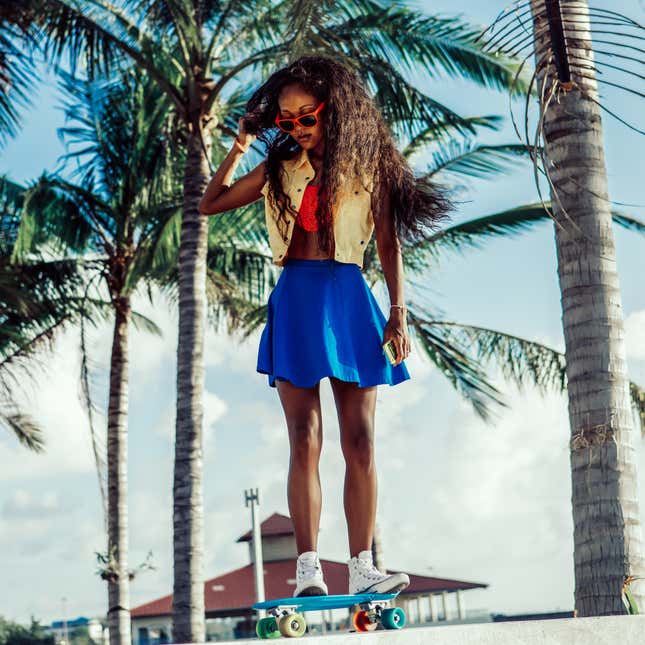
Proper Gnar, the first Black female-owned skateboard company, was featured on Beyoncé’s June list of Black-owned businesses we should know. The company, founded by Latosha Stone in 2013, is bringing representation to female skaters (especially Black ones) in the U.S.
“Skateboarding has traditionally been a man’s sport, which is why I am so passionate about my role as a Black woman who challenges past assumptions and shows that skateboarding is for all of us,” Stone tells Black Enterprise. “I take pride in creating authentic and beautiful art that stands out from other skate brands. I live and breathe skating and art, and I think that is reflected in the work I produce.”
On the company’s website, Stone sells skateboards, as well as artwork prints, apparel, and other skating accessories to round out the entire look. (In this day and age, that means a really cute graffiti-printed face mask, which is available for purchase on the site for $12.) Prices for the boards range between $60-$65, and feature an array of designs from candy to flames to designs featuring Black women.
Stone’s skateboards were featured on the HBO series Betty, which focuses on a group of skater girls from all ethnicities as they traverse the largely male-dominated scene in New York City. Dede Lovelace, Moonbear, and Ajani Russell are a few of the real-life Black female skateboarders featured on the show, who have all discussed a lack of representation in the space. (“I wanna be the role model I didn’t have growing up, for other little girls like me,” Russell wrote in a recent Instagram post.)
“I believe that representation is the key to having more young girls interested in skating,” Stone continues. “Genuinely loving skateboarding means you have to advocate and support it when you can.”
The Black skateboarding scene in general has experienced an uptick in popularity in recent years. In 2016, VIBE dissected the millennial resurgence of Black skateboarders, noting that the subculture “has its own history” within the Black community. It surged in popularity in the 1960s, but fell in the ‘70s due to a belief that skating was “kid stuff,” as well as a scarcity of skate parks in Black neighborhoods.
“With the rise of punk, gangsta rap, and grunge music in the 1980s and 1990s, skateboarding became a reflection of anti-corporate and anti-establishment values of the times,” Shanna Collins of VIBE wrote. “No longer was the subculture associated with wholesome, blond surfer boys on the West Coast; to the horror of white suburbia, it was now symbolic of urban anarchy.”

